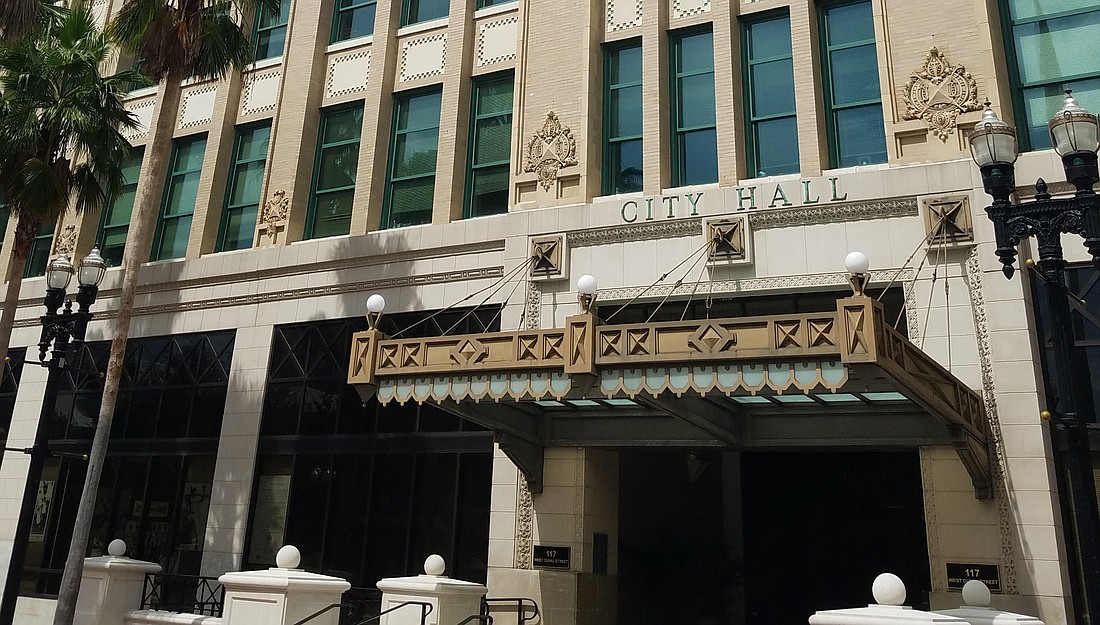
City Council will review legislation proposing a city-backed financial relief program for Duval County small businesses impacted by the response to COVID-19.
The bill, filed April 3, establishes a public-private partnership between VyStar Credit Union and the city for a combination of loans and grants to small businesses, first announced by Mayor Lenny Curry in a March 30 virtual news conference.
City officials anticipate the COVID-19 Small Business Relief Employee Retention Grant Program will cost Duval County taxpayers $26 million over six years, according to the bill.
VyStar will make a $50 million loan pool available in its COVID-19 Small Business Relief Loan Program.
Ordinance 2020-201 asks Council members to consider taking an initial $9 million from the city’s general fund balance to establish the grants.
Council President Scott Wilson will introduce the bill April 6 at a special meeting. He filed it at the request of the mayor and 16 of the 19 Council members. Council member Garrett Dennis is listed as a co-sponsor.
Council member Danny Becton said April 3 he has not had an opportunity to review the bill and cannot not comment at this time.
Council is scheduled to meet at 11:30 a.m. April 6. The meeting will be held virtually over the Zoom videoconferencing platform and will allow public participation.
City Ethics, Compliance and Oversight Director Carla Miller released a guide for community members to access the meeting online. Read the guide below.
Businesses in Duval County are losing revenue as social distancing and stay-at-home orders keep customers at home to slow the spread of COVID-19. Establishments that remain open have seen sharp sales declines.
Wilson said in a text message April 3 that he will push for a vote at the April 6 meeting. He said an in-and-out emergency will “help those in need right away.”
If Council approves the bill, it will be sent to Curry for his signature.
A program summary from Curry’s office shows VyStar will offer qualifying small businesses a fixed 5.99% interest rate on loans of up to $100,000.
Businesses can expect to be approved and receive the money within three to five days, according to the summary.
A $250 loan underwriting fee will be waived, credited by VyStar for loans under $5,000 and paid by the city for loans above $5,000.
VyStar President and CEO Brian Wolfburg told the Daily Record on April 1 that the loan would act as a line of credit that businesses owners could draw on for six months as needed.
The city’s breakdown states the interest-only payments due on the loan in the first year will be covered by a city grant. That’s in addition to a $1,000 grant given to each business awarded a loan.
The city will budget $3 million for the initial $1,000 grants, making the award available to the first 3,000 loan recipients.
Business owners will begin principal and interest payments in the second year in an amount “sufficient to repay the loan in 60 months,” the summary states. But the city will help with principal payments for businesses that meet employee retention requirements.
A program management agreement filed with the bill states the city will provide grants to cover interest cost in years two through six of the loan for businesses that retain at least 50% of their pre-coronavirus workforce as of Feb. 29.
In a text message to Council members April 3, Jordan Elsbury, Curry’s director of director of intergovernmental affairs, said a 90% workforce retention threshold was considered for the grants, but it was lowered to “accommodate business through this tough time and help them stay in business,” he said.
The city also will reimburse 10% of the principal annually after the first year of the loan. That will come as a grant to business owners who retain 100% of their pre-COVID-19 workforce.
The city could reimburse up to 50% of the loan principal for businesses that keep all their employees.
To qualify for the city benefits, businesses will have to submit employment documentation on a form provided by the city.
To qualify, a business must be in Duval County and have:
• Completed one year of operation.
• Completed at least one tax return.
• Have between two and 100 employees.
• Have documented proof it was negatively affected by COVID-19.